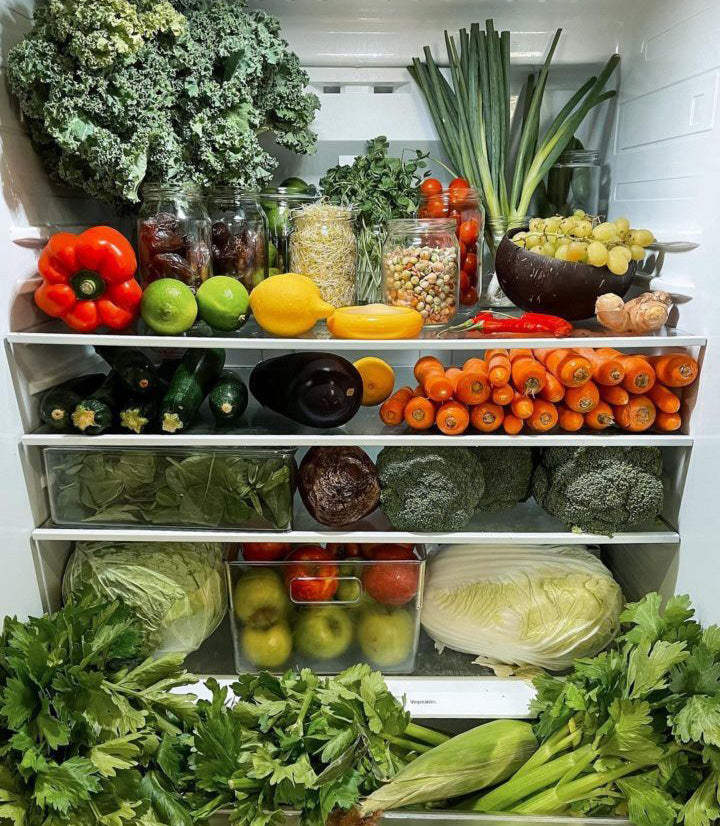Raw vs Cooked Veggies: What’s Best?

We all know that eating our vegetables is a must and that they provide many important health benefits for our body.
They're full of essential vitamins, minerals, antioxidants and fiber, but the question is - are raw or cooked veggies better for you? Let's get to the bottom of it.
If there's one thing that's certain, it's that vegetables are absolute nutritional powerhouses, supplying your body with plenty of micronutrients which ensures smooth functioning of all bodily functions - including digestion, mood regulation, supporting the immune system, and much more.
Eating a variety of veggies every day will make sure you're reaping these benefits and giving your body the TLC it needs.
The raw vs cooked debate
Here’s the dilemma, when we cook fresh produce, it changes the molecular structure of food, and vegetables are no exception to this.
It’s a very common belief that raw vegetables are superior because it’s their natural state, right? Well it actually turns out the answer is not so simple.
Yes it's true that cooking food does deplete certain nutrients, BUT, it can also greatly increase the availability of others!
So, let’s hear both sides out.
The benefits of raw veg
Unfortunately any cooking method reduces the availability of certain nutrients in your foods, such as water-soluble vitamins C and the B vitamins, and certain minerals such as magnesium, potassium, sodium and calcium.
This means that eating raw veggies, such as capsicum for a vitamin C boost, or dark leafy greens for a hearty dose of B vitamins, is a great way to boost your intake of micros.
Raw veggies also make a delicious and nutritious snack that's high volume, low in calories, and has a satisfying crunch (carrot sticks and dip, anyone?).
But before you give up your side of roast veg and fully commit to the raw life, here’s some more food for thought.
The case for cooked veg
Cooking your vegetables can actually help make certain nutrients more available compared to raw counterparts.
Antioxidants are one, which are amazing natural neutralisers of harmful free radicals in our bodies. Studies have shown higher antioxidant availability in many vegetables once cooked.
Carrots for example, are rich in beta-carotene, a powerful antioxidant that our body converts to Vitamin A and is also associated with reduced risk of heart disease.
Lycopene is another antioxidant amplified by cooking, which is found in tomatoes. Research shows that lycopene content can be as much as 2-10 times less in raw tomatoes, so the difference after cooking is super impressive.
Cooking may also help make certain minerals easier to absorb, including calcium and iron, so it’s definitely worth increasing your repertoire of cooked vegetables.
When you consider food safety, the debate is also in favour of turning the heat up on veggies, as most bacteria and viruses that are pathogenic to humans are destroyed in the cooking process.
And finally, cooking vegetables also often makes them more palatable and allows us to eat a whole lot more than their raw version. Take spinach for example, a big bag can wilt down to next to nothing when cooked.
This is an important point because without consuming enough veggies overall, you can’t really benefit from their great nutritional offerings.
How to minimise nutrient depletion
Like we've said, any cooking method you choose will inevitably strip your veggies of some nutrients. However, you can minimise this depletion by following the tips below.
-
DO minimise cooking time and temperature.
Cooking your veggies for too long, or with super high temperatures, will increase nutrient depletion. So if your goal is to preserve as much micros as possible, cut down on your cooking time.
-
DON’T boil veggies and discard the liquid.
When boiling vegetables, lots of the nutrients leach into the cooking liquid. So unless you’re making a soup or a stew, this isn't the best choice for retaining your vegetables nutrients.
-
DO aim to get super fresh, local produce.
Veggies start to lose their nutrient content from the moment they're picked, so if you’re cooking with fresh veggies, it pays to know how much time they’ve spent travelling to you.
-
DON’T peel if you don't have to.
Particularly for veggies such as carrots, beets and potatoes, much of the nutrients are held in the skin, so it's better not to peel them unless necessary for a recipe. Even cooking with the skin on and peeling afterwards can help preserve more nutrients.
While optimising the preparation method of your veggies can provide some extra health benefits, the most important thing to focus on is making sure you're having enough vegetables in the first place.
Our best advice is to pack your plate with as many different colours and varieties as you can, and your body will thank you for it.
To help hit your veggie intake, head to the Move With Us App to explore our ever-expanding library of over 1000+ delicious and nutritious recipes.







